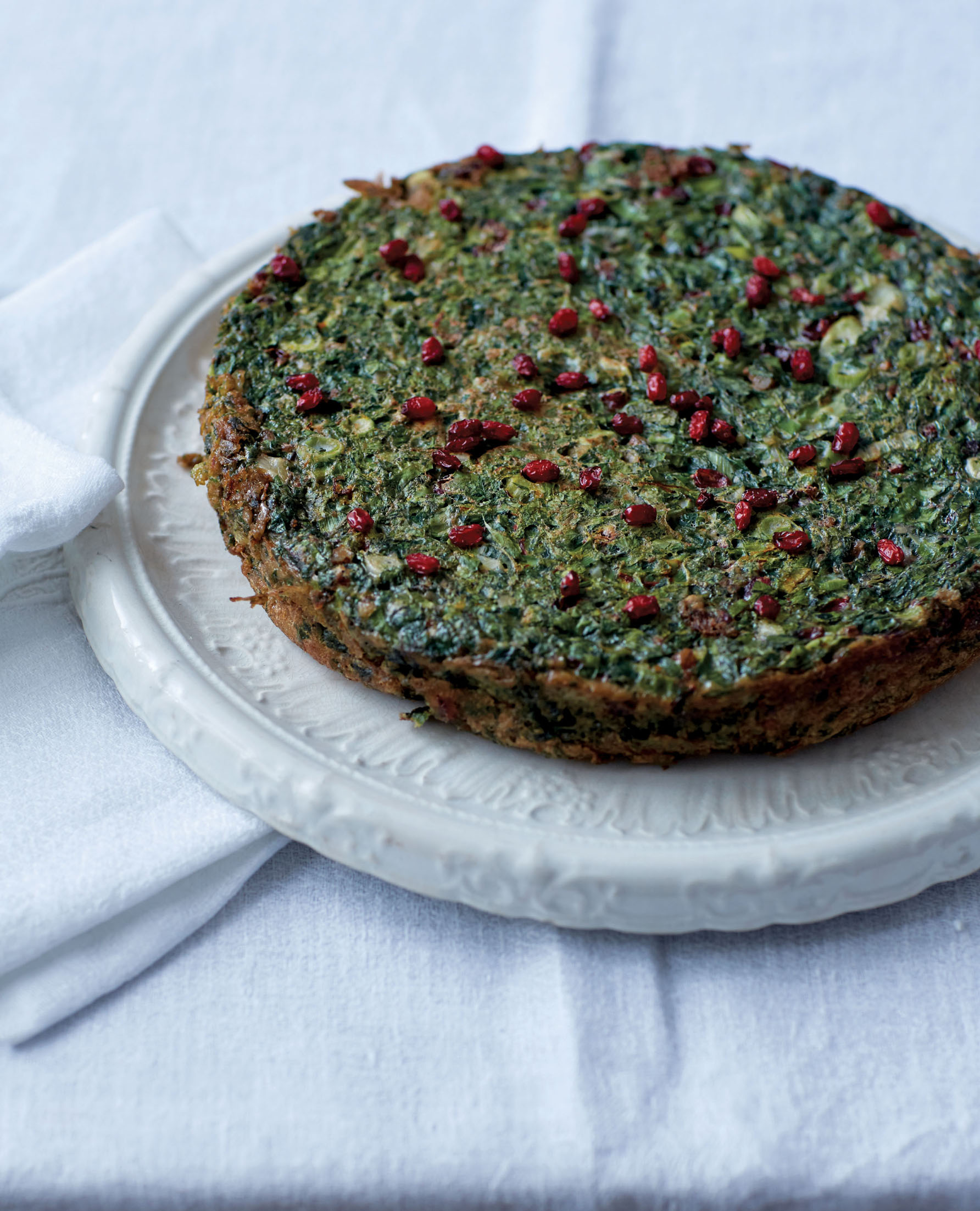SABZI KUKU
IRAN

Kuku is a more elaborate version of a Spanish omelet, made with different fillings from green beans to this amazing herb version that is served for Nowruz (Persian New Year). Sabzi means “herbs” in Iranian and usually people buy the herbs ready-mixed and often chopped to order in the market, but you will have to make your own mix here in the West.
SERVES 4
Pinch of saffron threads
4 walnut halves, coarsely chopped
1 teaspoon dried barberries (zereshk)
1 bunch flat-leaf parsley (7 ounces/200 g), most of the bottom stems discarded, finely chopped
1 bunch cilantro (7 ounces/200 g), most of the bottom stems discarded, finely chopped
3 bunches scallions (5 ounces/150 g total), thinly sliced
½ teaspoon dried powdered fenugreek leaves
8 organic eggs
2 teaspoons unbleached all-purpose flour
1 teaspoon baking powder
Sea salt and finely ground black pepper
2 tablespoons vegetable oil
1. Put the saffron to steep in 2 teaspoons water.
2. Put the walnuts, barberries, herbs, scallions, and dried fenugreek in a large mixing bowl and mix well. Break the eggs into a medium mixing bowl and beat well. Add the saffron water, flour, and baking powder and mix well. Pour over the herbs. Season with salt and pepper to taste.
3. In a 6-inch (17.5 cm) round nonstick skillet (you don’t want to use too large a pan as you need your omelet to be at least an even 1 inch [2.5 cm] high), heat the oil over medium heat until hot. Pour in the egg mixture and shake slightly from side to side to even out the mixture. Reduce the heat to low, cover, and let cook gently for about 25 minutes, or until the omelet has risen well. Invert a plate over the pan and invert the omelet onto it. Slide it back into the pan and cook, uncovered, for another 10 to 15 minutes, until browned on both sides and cooked through.
4. Gently transfer to a serving platter and serve hot or let cool to serve at room temperature.